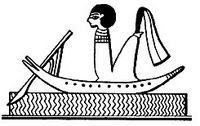Modern secularism can't satisfy spiritual cravings
"In matters of soul and spirit, things are not always what they might seem." Moore observes, "I have come to understand sexism and violence against women as a spiritual issue, as a failure to appreciate the feminine mysteries" which no amount of nudity, ogling, looking or voyeuristic regard will alleviate. The deepest interior, which cannot be seen, can only be sensed with the soul-heart is at issue. "Today many spiritual passions are disguised in politics, war, money, sex or athletics." Even so, most secular, enlightenment, outlets for spiritual passion are inadequate because they address merely a surface issue, meaning that recognition is viewed only indirectly, often unconsciously, so we don't often even admit they are religious. These modern, secular, indirect forms "siphon off spiritual steam, leaving unsatisfied religious needs."The blog suggests that with spiritual growth, we may discover paradoxes: how to combine apparent opposites into a coherent whole. This "is our challenge, and our grace."
This loss of recognition of the spiritual, the religious, as an attitude, a way of life, a lifestyle, leads to great degrees of loss, of illness, of alienation in modern life. Some have written of the "sick soul." Many relationships, families and marriages fail "because we now treat them as sociological constructions or psychological arrangements, partnerships, rather than as holy mysteries. As a result we continue to crave religion of the deepest kind, often in disguised form; yet so much of what we try is inadequate, "only increasing the craving and emptiness" of our deepest selves, writes Moore.
Labels: The Soul's Religion, Thomas Moore


